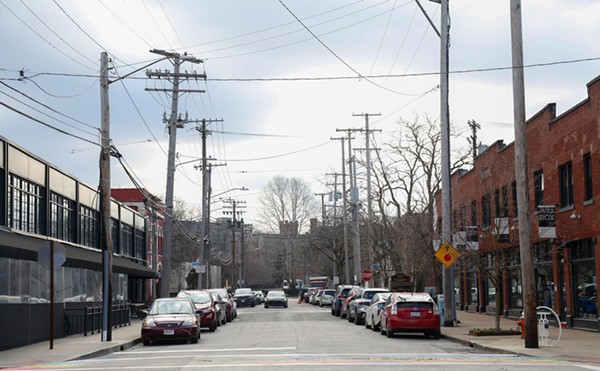"For some reason, there was no traffic," he says, exhaling. "We figured, what the hell, we'll cross early. If we wouldn't have crossed early, this might not have ever happened." And if the attack hadn't happened, Jack might still be living as Zoerella Page.
He'd begun the transition to life as a woman in February 2011, seven months before the violence.
Years of post-traumatic stress disorder therapy connected the dots from his life in wartime to the questions about gender and self-identity that coursed through his childhood. In the late 1980s, Jack enlisted in the military, later saying that he was seeking those sorts of masculine social dynamics. He picked rapid deployments, serving in Panama, Desert Shield and Mogadishu, "trying to get it out of my system," he says now. It didn't work. He willed the masculine to the forefront of his character, but his mind flowered into adulthood in other ways. Later, divorce proceedings forced the contrast into starker standing. In his 30s, he began trundling down the road toward the transition: counseling, presentation (new clothes, new lifestyle), testosterone blockers, estrogen, pills to take care of that receding hairline, and ongoing networking among others walking the same path. One must live as the other gender for a certain amount of time before legally changing name and gender. Jack was on his way.
"Once you finally transition, you seem to be in your own right body — the body that you were meant to be in. There's an elation, there's happiness, there's joy, until something like this happens," Jack says.
***
After Jim Laule ran off the attackers, Cleveland police showed up at the corner of Clifton and West Boulevard and transported Zoerella and Jenny to the hospital. Zoerella was in desperate shape and seeing stars.
"MetroHealth was very transphobic," Jack recalls. They were placed in what he calls a "closet-type room," where he says they waited for 45 minutes to hear from a nurse. Another two hours passed before the doctor showed up. Meantime, Zoerella was bleeding all over the room, bleeding all over her clothes. Her head throbbed. Her nose jutted out from her face at a new angle.
As they left, the women asked the hospital to call the police back. They wanted an escort, for their safety. The staff refused, Jack recalls, pointing the ladies toward a pay phone downstairs.
"We were just robbed. We don't have cellphones. We don't have change. We don't have money," Jack says now, though the staff members at the hospital didn't budge. (Metro spokesperson Tina Shaerban-Arundel says that the hospital does currently have a free phone in the main lobby for patients' use.)
The women began walking. Their goal was the Louis Stokes Cleveland VA Medical Center on Wade Oval, where Zoerella maintained relations as a veteran seeking PTSD therapy. "We walked through worse neighborhoods than where we got jumped," Jack says. "I grabbed a stick, and she had a pipe."
Along the way, they convinced a conductor along the Rapid's Red Line to let them ride for free. At the VA, they went through a more rigorous checkup and were sent home. Jenny had worked through tears to convince her dad to pick them up. Sunrise was coming soon enough, and by then the women were changed completely.
It didn't take long for Zoerella and Jenny to break up. These days, Jack doesn't say much about that split. After the violence, there's not much left to say.
"When we got jumped, I should have been able to defend us, but I just froze," he says. "I went — I mean, everything — it's just like when you go into shock in combat, everything goes into slow motion. You freeze. You can't move. It's like if you've ever had a really bad nightmare and you're trying to scream, trying to wake yourself up. You want to do it, you're telling yourself to do it, but nothing works."
***
The city had been discussing a recent and ongoing wave of crime against the transgender community for several years when Scene first spoke with Jack. From assaults to murders and a breadth of legally sanctioned discrimination in between, Cleveland had been building up a cold front. This past summer's Gay Games 9, an international sporting event held every four years in selected cities, presented a different reality than the one happening on the streets.
"It's bridging. It's not inclusive, but it's bridging," Zoë Lapin says of the dissonance among Cleveland's approach to the LGBT community, something that isn't talked about too much in the months since the Games. "After the [Gay Games] week was over, most if not all of the businesses had taken their flags down."
The PR sheen wears thin among some in the community. Police spokespersons have denied a "pattern or trend" of crimes against the LGBT community, but the rate of attacks hasn't diminished. Some make the papers; most don't.












